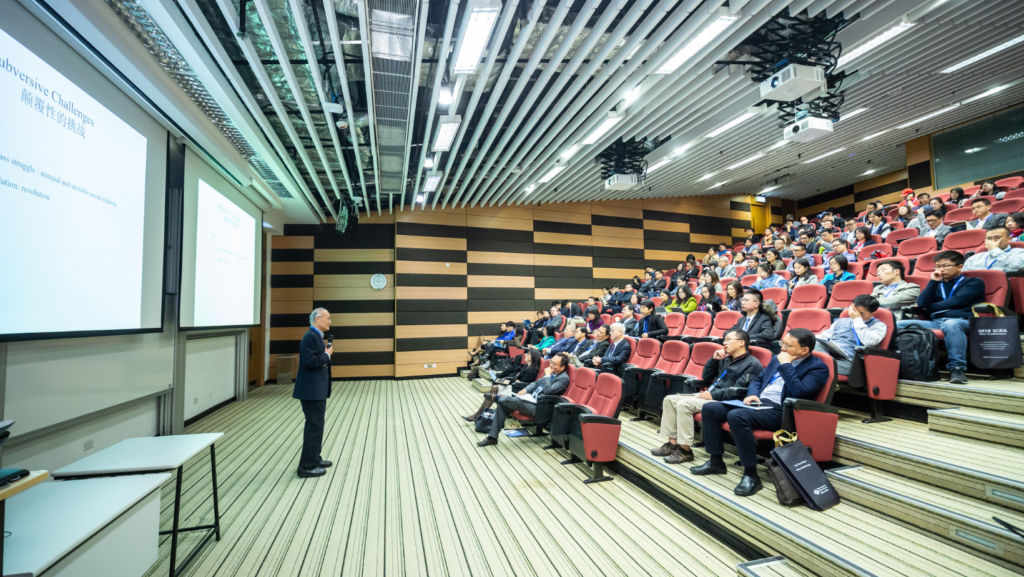
In the vast universe of spoken words, there’s a special category that stands out – inspiring talks. They’re not just ordinary conversations or lectures, but powerful discourses that stir emotions, provoke thoughts, and ignite change. They’re the magic potion that can transform ordinary into extraordinary.
In the digital age, inspiring talks have become more accessible than ever. From TED Talks to podcasts, they’re reshaping the way we perceive the world, influencing our decisions, and pushing us to step out of our comfort zones. But what makes these talks so captivating? How do they manage to touch the deepest corners of our hearts and minds?
Join us on this fascinating journey as we delve into the world of inspiring talks, unraveling their power, impact, and the secret behind their irresistible allure. It’s a realm where words create worlds, and ideas have the power to move mountains.
Inspiring Talks
The magnetic allure of inspiring talks lies in their ability to ignite change in listeners. This change-driven magic can be traced to several crucial elements that sew a common thread between inspiration, self-growth, and motivation. Two standout factors – the use of compelling storytelling and the display of authenticity and vulnerability – appear more frequently in talks that leave a lasting impact.
The Role of Storytelling in Inspiration

Stories wield a unique power in inspiring talks. Rather than barraging facts and jargon, speakers adopt storytelling as a valuable exchange tool, turning complex ideas into relatable instances. Classic examples like Martin Luther King Jr.’s “I Have a Dream” speech, recorded for its powerful narrative, ignited a monumental civil rights movement. This impactful speech capitalized on storytelling to deconstruct societal issues, making it personal and relatable to millions at once. Today, tools like text-to-speech AI free platforms allow such speeches to reach wider audiences effortlessly. By converting powerful narratives into lifelike audio, these tools help individuals experience iconic speeches even if they cannot read or attend talks live.
When speakers construct their talk around a story, they tether their ideas to life experiences. Audiences peek into the narrator’s world through a unique, unfiltered lens. This humanizes speakers and their messages, nudging listeners towards introspection and ceaseless growth.
The Importance of Authenticity and Vulnerability
Authenticity and vulnerability together form a solid pillar in an inspiring talk. Speakers prompted substantive reflection in listeners by openly sharing personal vulnerabilities – a tactic evident in J.K. Rowling’s commencement speech at Harvard. Exposing her struggles and failures, Rowling addressed the significance of empathy and imagination, leaving an indelible mark on listeners.

Authenticity, on the other hand, is about staying true to oneself and walking the talk. People gravitate towards genuine figures, a trait visible in Oprah Winfrey’s soul-stirring speeches. She wore her authenticity like an emblem, unfolding her life’s struggles and successes in front of her audience. Such honesty fosters trust, facilitating stronger connections with listeners, and, consequently, inspiring them to take constructive action.
Most Influential Inspiring Talks of the Decade
Talks That Shook Audiences Worldwide
Three influential talks highlight the decade: Brené Brown’s presentation on the power of vulnerability, Sir Ken Robinson’s discourse on fostering creativity in education, and Sheryl Sandberg’s talk on why there aren’t enough female leaders. Brown’s TED talk, given in 2010, explores how embracing vulnerability can lead to a richer, fuller life. Similarly, Robinson’s 2006 monologue, the most-watched TED talk of all time, examines how educational systems stifle creativity and offers solutions to address this issue. Sandberg’s 2010 speech highlights the gender gap in leadership roles, identifying reasons for its existence and proposing effective solutions.
How These Talks Continue to Influence Today

The talks mentioned above remain relevant and influential. They’ve spawned new ways of looking at individual vulnerability (Brown), innovative education methods (Robinson), and female leadership (Sandberg). Not just sparking conversations, they’ve improved practices, policies, and even lives. Brown’s insights have been instrumental in reshaping the discourse on emotional health and resilience, Robinson’s ideas continue to steer conversations on pedagogical revisions, and Sandberg’s observations still catalyze efforts in enhancing women’s leadership across sectors.
Accessible Inspiring Talks
The power of inspiring talks can’t be overstated. They’re a catalyst for personal growth, sparking new ideas and challenging the status quo. With a multitude of platforms like TED Talks, YouTube, Apple Podcasts, and Spotify, there’s no shortage of content to explore. Local events and community talks further enrich this experience, adding a layer of personal interaction that online platforms can’t replicate.
